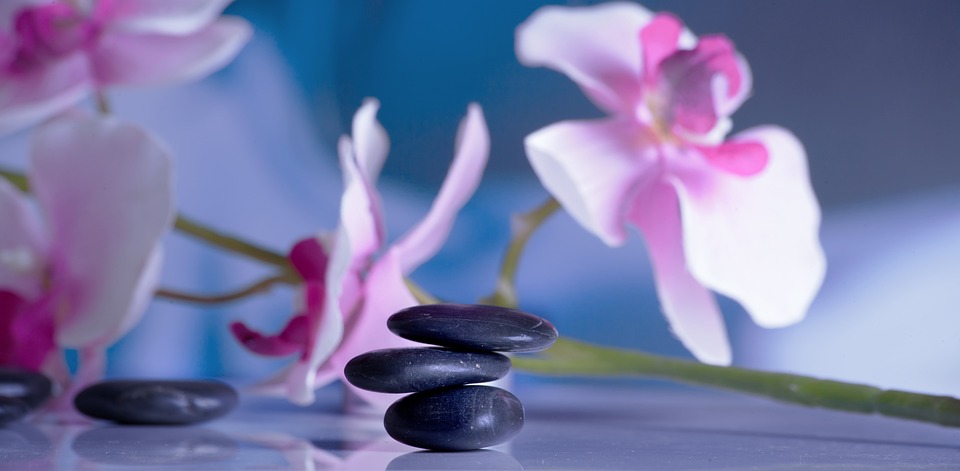Balancing a demanding career while still making time for adequate self-care can be challenging. However, self-care is essential for maintaining both physical and mental health, preventing burnout, and being productive in your work and daily life.

This comprehensive guide will provide an overview of the top affordable self-care ideas tailored specifically for busy professionals like you. We compare the most popular options across key factors so you can easily choose what self-care practices make the most sense to incorporate into your lifestyle.
What is Self-Care and Why is it Important?
Before diving into the specifics, let’s quickly go over some self-care basics.
Self-care refers to any activity that we deliberately choose to engage in to take care of our mental, emotional, and physical health and well-being. It’s about addressing our needs in a holistic way so that we can be our best selves in our careers, relationships, and all parts of life.
Consistent self-care helps busy professionals like you:
- Reduce and manage stress
- Increase focus, drive, motivation, and productivity
- Prevent career or life-related burnout
- Improve your overall health and wellness
- Achieve better work-life balance
Unfortunately, with packed schedules, it’s easy to deprioritize self-care. But this will backfire over the long-run, as chronic stress takes its toll mentally, physically, and emotionally — eventually hindering your performance.
That’s why it’s so important to deliberately carve out time for affordable self-care based on your needs and preferences. The activities you choose might help you destress, move your body, nourish yourself, boost your mood or energy levels, connect with others, restore your creativity, and more.
When you practice consistent self-care, you’ll have the energy, focus, drive, and wellbeing to crush each day and continue progressing in your career.
Overview of the 12 Best Affordable Self-Care Ideas for Busy Professionals
There are so many free and low-cost self-care ideas out there that it can get overwhelming to choose. So we’ve done the research for you!
Here are the 12 best affordable self-care practices that busy professionals can realistically fit into their lifestyles, along with a comparison chart at the end to help you decide.
Movement
- Go for regular walks outside
- Do stretch breaks throughout your workday
Rest & Recovery
- Prioritize high quality sleep
- Schedule breaks during your workday
Nutrition & Hydration
- Stay hydrated with water throughout your day
- Fuel with quick healthy snacks & meals
Mental Health Management
- Practice mindful breathing exercises
- Journal or free write to process emotions
Fulfillment & Happiness
- Listen to uplifting or motivating podcasts
- Infuse creativity into your life
Social Connection
- Have video chat catch-ups with close friends or family
- Join networking events or professional associations
Below we’ll explore each self-care type and activity in more detail, along with actionable tips for staying on track. Keep reading to determine which practices seem the most sustainable and beneficial for your needs!

Detailed Breakdown of the 12 Best Affordable Self-Care Ideas for Busy Professionals
Movement
1. Go for regular short walks outside
Finding time for longer workouts can be challenging on busy schedules. But going for short, regular walks is a simple way to incorporate more movement into your days.
Aim to walk for just 10-20 minutes once or twice a day. This might be a quick walk around your office building, a few laps around the park near your home, or even pacing while you take business calls.
Outdoor walks help boost energy levels while giving your eyes and brain a break from screens. Exposure to nature and sunshine provides mental health perks as well.
Over time, you’ll reap the cardiovascular benefits of a more active lifestyle. And remember that little bursts of activity here and there add up in terms of health impacts!
Tips for sticking with it:
- Set reminders on your calendar or watch to prompt walking breaks.
- Ask coworkers to join you for outdoor walks rather than sitting through entire meetings.
- Consider walking meetings when possible for productive brainstorming time.
2. Do stretch breaks throughout your workday
It’s easy for busy professionals to get stuck sitting for prolonged periods of time, often in less than ergonomic postures. This leads to increased bodily pain and tension over time.
That’s why it’s critical to take frequent mini stretch breaks — even for just 1-2 minutes here and there.
Simple stretches you can do include neck rolls, shoulder shrugs, back twists, torso side bends, quad and hamstring stretches, wrist and forearm stretches, and more. Mix it up based on areas feeling tight or sore.
Prioritize proper posture while working and stretch whenever you start feeling tension creeping in. Just a minute or two of stretching makes a big difference in reducing stiffness, boosting circulation, and avoiding repetitive strain injuries.

Tips for sticking with it:
- Set reminders to prompt you to stretch every 30-60 minutes
- Follow quick workplace stretch routines on YouTube for inspiration
- Hang reminder signs at your workspace asking “When did you last stretch?”
Rest & Recovery
3. Prioritize high quality sleep
With nonstop schedules, sufficient sleep is often the first thing we sacrifice. But running on empty backfires, with compounding mental fog, lack of focus, sluggishness, and susceptibility to sickness.
Strive for 7-9 hours of sleep per night. This may involve rethinking evening routines, limiting electronics use before bed, creating an optimal sleep environment, or giving yourself firm workday stopping points.
If anxiety keeps you up, consider listening to soothing music, sipping herbal tea, meditating, or jotting a brain dump before bed to clear your mind. Determine what helps you unwind.
Tips for sticking with it:
- Have a 30-60 minute buffer zone before bedtime for unwinding
- Avoid electronics for 1 hour pre-bedtime
- Invest in blackout curtains and an comfortable mattress/pillow
4. Schedule breaks during your workday
It’s easy to get so focused on work that we power through the entire day without coming up for air. But periodic breaks are essential for productivity, creativity, decision making skills, and accuracy over the long haul.
Schedule 15-30 minute breaks every 2-3 hours in your calendar and set an alarm reminding you to actually step away. During breaks, get up and move around, eat a snack, listen to uplifting music, get fresh air…anything that distracts you and lets your mind recharge!
Use microbreaks for 5-10 minutes here and there between meetings or tasks as well. Give your eyes a rest from screens as frequently as possible.
Tips for sticking with it:
- Build breaks into your workflow rather than leaving them open to elimination
- Use break time blocks on calendars to prevent back-to-back meetings
- Set site blockers to limit access to distracting sites except during breaks
Nutrition & Hydration
5. Stay hydrated with water throughout your day
Dehydration is all too common and causes headaches, fatigue, trouble concentrating, digestive issues, and even impaired metabolism over time.
Make a point to sip water consistently throughout busy work days. Have a reusable water bottle or glass on your desk and finish it hourly. Set phone reminders if needed.
If plain water bores you, liven it up with slices of fruit, cucumber, or lemon. Just avoid sugary mixes that undermine the health benefits of staying hydrated.
Tips for sticking with it:
- Have a dedicated reusable water bottle just for work days
- Include your water bottle on your daily checklist of items to grab
- Set hourly phone alarms reminding you to drink up!
6. Fuel with quick healthy snacks & meals
When overloaded, it’s easy to sabotage nutrition by relying on fast food, vending machine snacks, sugary coffee drinks, and convenience store grabs.
But what we eat makes a huge difference in afternoon energy crashes, mood, focus, immune function, digestive issues, skin health, weight management and more.
Stock up on nourishing grab-and-go snacks like fresh fruit, nuts, seeds, carrots and hummus, yogurt, hard boiled eggs, protein bars, and smoothies.
Cook large batches of hearty main dishes like quinoa bowls, soups, chili, or casseroles on weekends. Portion these out so quick weeknight meals are set.
Tips for sticking with it:
- Do weekend meal prep for ready-to-grab portions all week
- Pack snacks ahead of time rather than leaving it up to willpower in the moment
- Keep nutritious snacks visible at your workspace to prompt good choices
Mental Health Management
7. Practice mindful breathing exercises
Stress compounds when we don’t adequately address it. This leads to tension buildup, anxiety, irritability, emotional reactivity, and exhaustion over time.
That’s why purposefully pressing pause for a few moments here and there makes a big difference long-term. Mindful breathing is the easiest way to engage the relaxation response.
Find brief windows — even 30 seconds — to close your eyes and take a few long, slow deep breaths. Tune into the physical sensations of inhaling and exhaling. Draw the breath down into your belly rather than chest.
This act instantly calms the nervous system, clears overwhelm, centers focus, and reconnects us to the present moment. It’s an easy mental reset when done consistently!
Tips for sticking with it:
- Practice mindful breathing first thing in the morning and before bed
- Set random reminders to take mindful breathing breaks
- Notice bodily tension signals and breathe through them
8. Journal or free write to process emotions
Journaling is a great way to unpack swirling thoughts when feeling overwhelmed by work or personal demands. The simple act of writing your thoughts out by hand helps release inner turmoil rather than letting it fester.
Don’t worry about structure or grammar when journaling. The goal is to tap into whatever emotions you’re internalizing related to stressful events, relationships, work projects, or future worries. Describe scenarios, how they make you feel, questions you have, possible solutions, and any vague anxieties.
Ideally, journal for 10-15 minutes daily or every few days. But even just 5 minutes or sporadic free writing here and there is beneficial for gaining clarity and releasing pent-up feelings.
Tips for sticking with it:
- Keep your journal visible so you remember to use it
- Set a recurring reminder to journal at the same time daily
- Date each entry so you can track patterns over time
Fulfillment & Happiness
9. Listen to uplifting or motivating podcasts
It’s easy to get stuck in a doomscrolling trap, only taking in negative news that dampens your mood and outlook over time. Make a point to also consume inspiring, meaningful, and motivating content as part of your media diet.
Podcasts are a great medium since you can listen during commute time, on walks, while cooking meals, or doing virtually any activity. Seek out pods that spark your curiosity about the world, cover empowering stories, highlight influential leaders across industries, or share ideas that excite and uplift you.
Infuse this habit during parts of your week when you need an extra dash of positivity or inspiration!
Tips for sticking with it:
- Find pods that align to your interests and core values
- Seek a balance of informational and entertaining pods
- Take inspiration from choosing new pods to try each month
10. Infuse creativity into your life
Channeling creativity, even in small ways, is incredibly nourishing for the soul. Creative outlets help maintain youthful perspectives, activate different parts of your brain, reduce stress through flow states, and unlock inspiration that enhances all facets of life.
It doesn’t matter whether you dabble in painting, photography, writing, music, graphic design, jewelry making, woodworking, or any hobby that ignites your imagination.
Start small by carving out even 30-60 minutes once or twice a week for creating just for you rather than any end goal. Over time, find ways to infuse more tiny creative acts into your daily lifestyle with quick sketching, singing in the car, taking nature photos on walks, etc.
Tips for sticking with it:
- Explore beginner instructional YouTube videos on hobbies of interest
- Schedule dedicated hobby time on your calendar and set alerts
- Join local creative meetup groups for inspiration and accountability

Social Connection
11. Have video chat catch-ups with close friends or family
With packed schedules, it’s easy to neglect meaningful connection with loved ones for too long. Video calls are the next best thing to in-person interactions for nurturing relationships essential to overall wellbeing.
Rather than quick fragmented texting, have weekly or biweekly video call catch-up sessions with those you’re closest with. Chat while making dinner, take video walks together, or just curl up comfy with your beverage of choice and talk life, goals, triumphs, concerns…anything!
The consistency of meaningful facetime preserves intimacy with your inner circle near and far. Prioritize this ritual for emotional recharging and laughter therapy regularly.
Tips for sticking with it:
- Set recurring calendar invites so video catch-ups don’t fall through cracks
- Theme chats around questions or activity ideas to spark conversations
- Show interest in loved ones’ lives; advice often stems from relating
12. Join networking events or professional associations
Humans are social creatures with an innate need to connect beyond surface levels. Seek out in-person opportunities — when reasonable COVID-wise — for making new acquaintances and contacts rooted in common interests.
Attend industry meetups, speaking engagements featuring leaders in your field, professional organization mixers, mastermind groups, or local workshops. Introduce yourself to attendees and follow up to nurture relationships.
Exploring shared passions sparks energy and openness to new perspectives. You’ll sharpen communication abilities and expand positive influences in your circle…and likely have fun in the process!
Tips for sticking with it:
- Scan Eventbrite and Meetup.com for inspiring local happenings
- Follow thought leaders online and attend their speaking events
- Have an “elevator pitch” ready summarizing your skills and ambitions
Comparison of the 12 Best Affordable Self-Care Ideas for Busy Professionals
| Category | Self-Care Activity | Time Commitment | Physical | Mental | Cost* |
| Movement | Take regular short walks outside | 10-20 mins, 1-2x/day | ✅ | ✅ | Free |
| Movement | Stretch breaks at work | 1-2 mins every 30-60 mins | ✅ | ✅ | Free |
| Rest & Recovery | Prioritize high-quality sleep | 6-9 hrs nightly | ✅ | ✅ | $ |
| Rest & Recovery | Schedule work breaks | 15-30 mins every 2-3 hrs | ✅ | ✅ | Free |
| Nutrition & Hydration | Stay hydrated with water | Daily goal 64+ oz | ✅ | ✅ | Free |
| Nutrition & Hydration | Healthy grab & go snacks/meals | Daily | ✅ | ✅ | $ |
| Mental Health Mgmt | Mindful breathing | 30 sec – 5 min breaths | ✅ | Free | |
| Mental Health Mgmt | Journaling/free writing | 5-15 mins daily | ✅ | $ | |
| Fulfillment & Happiness | Listen to motivating podcasts | 30 mins – 1 hr weekly | ✅ | Free | |
| Fulfillment & Happiness | Creative hobbies | 30-60 mins 1-2x/week | ✅ | $-$$ | |
| Social Connection | Video chat catch ups | 30-60 mins weekly | ✅ | Free | |
| Social Connection | Attend networking events | 2-5 hrs monthly | ✅ | ✅ | Free-$ |
Cost:
- Free: No additional cost
- $: Minimal cost (under $20/month)
- $$: Moderate cost ($20-$100/month)
FAQ covering common questions on self-care for busy professionals
Still have some lingering questions on realistically integrating self-care into demanding schedules? Here we cover the most frequently asked questions.
How do you make time for self-care when you barely have time for necessities?
This is the perpetual struggle! With seemingly endless work and personal to-do lists, carving out extra time for self-care can feel totally unrealistic.
The key mindset shift is recognizing that self-care is just as much of a necessity as all your other obligations. It essentially fuels your ability to show up as your best self across all domains — work productivity, relationships, health, finances, personal growth, everything!
So self-care deserves space on your calendar and checklist. Even starting with 20-30 minutes daily can work wonders. Identify windows of time, like lunch breaks, commute time, between dinner and bedtime tasks, etc.
Get scrappy and multitask where possible. For example, listen to podcasts while cooking and cleaning rather than sitting idle. Practice mindful breathing while walking between meetings. Schedule video catch-ups with friends while folding laundry.









